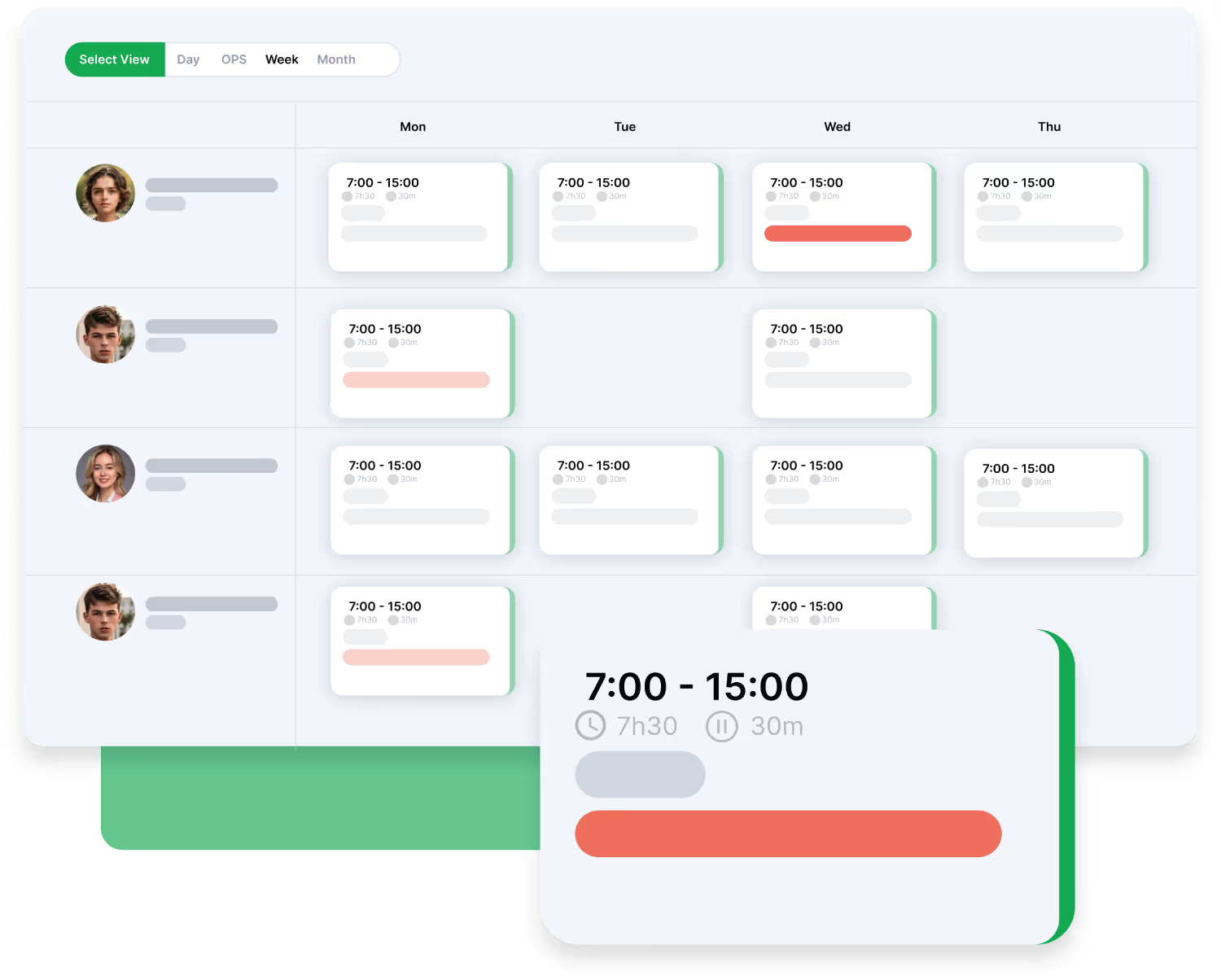









.avif)
.avif)


.avif)





Shyfter’s mobile apps lets your team track time straight from their phones or tablets – clock in/out, log breaks, and sync real-time data instantly. Add GPS & random pictures verification for accuracy, ...
Crunching numbers by hand? Manual reports aren’t just tedious—they’re a minefield for mistakes.
Sync data straight to payroll, customize dashboards, and spot trends with real-time insights.





From restaurants to bars and hotels, Shyfter streamlines scheduling and time tracking for the fast-paced hospitality industry.
Simplify workforce management and keep your team thriving, even during the busiest hours.
Calculate your productivity and staff the right people in the right place at the right time.

For supermarkets and convenience stores like Carrefour, Leclerc, Delhaize, or 7-Eleven, Shyfter ensures smooth operations by optimizing shift planning and absence management across multiple locations.

No matter your industry, Shyfter adapts to your unique workforce needs.
We are a crowdsourced builded app. Ask us your dream feature, we evaluate and we develop.
